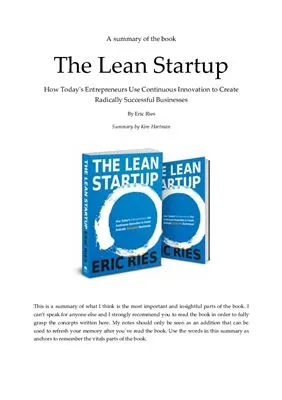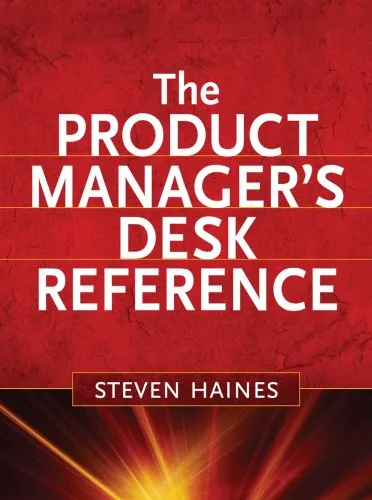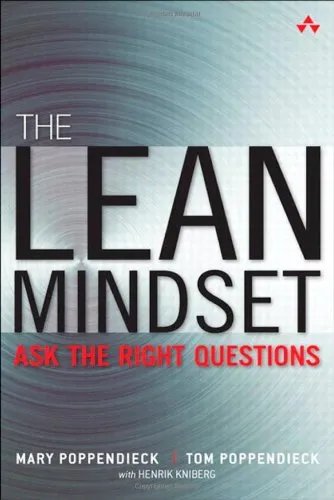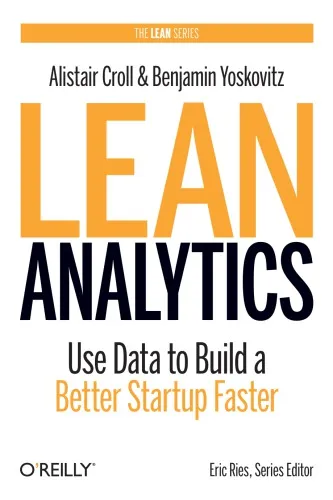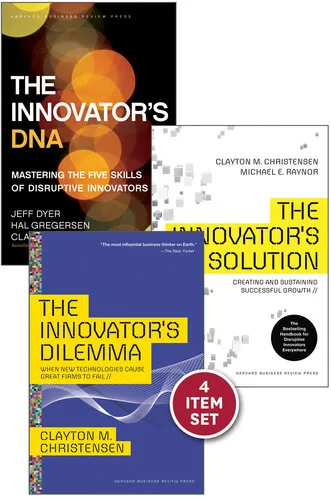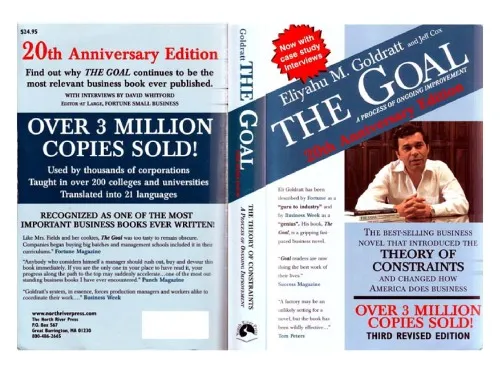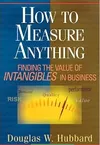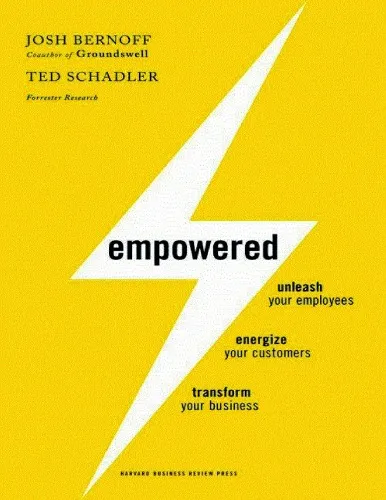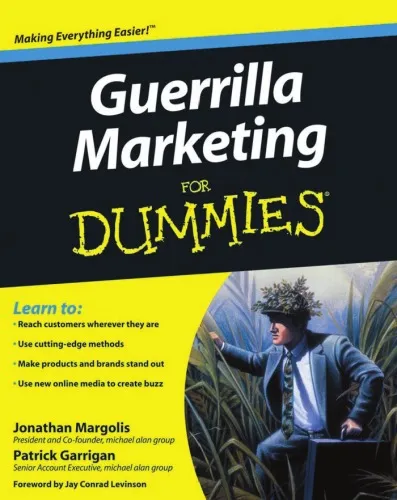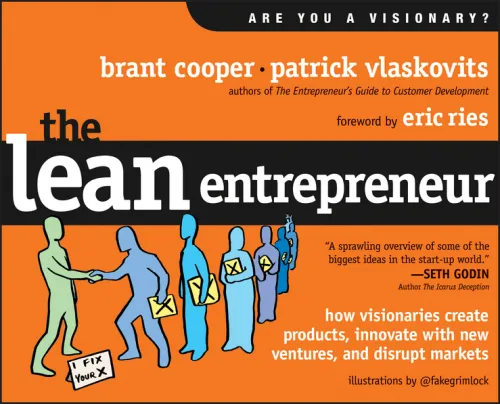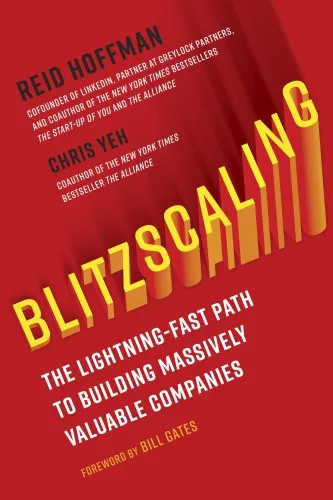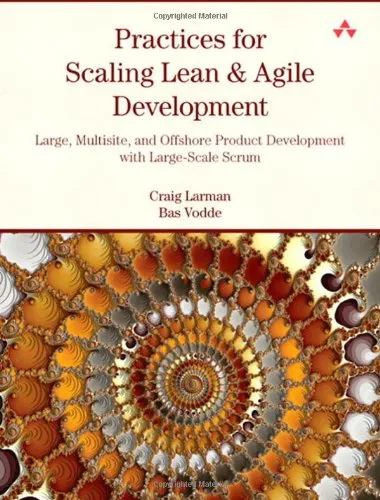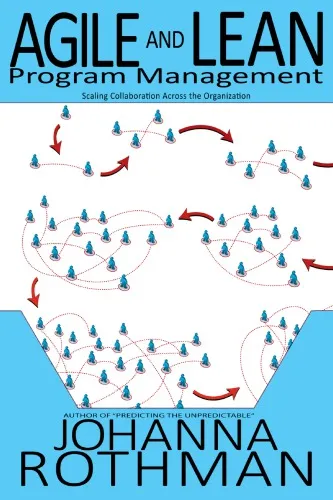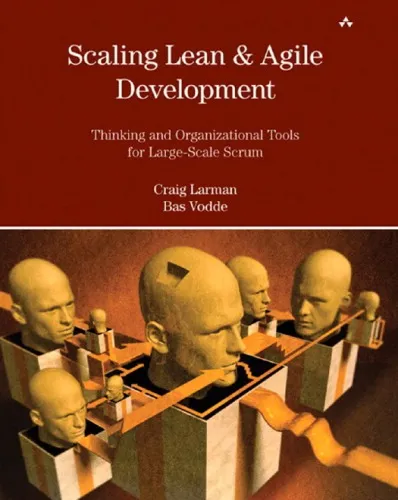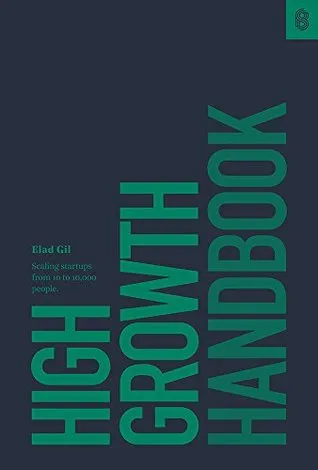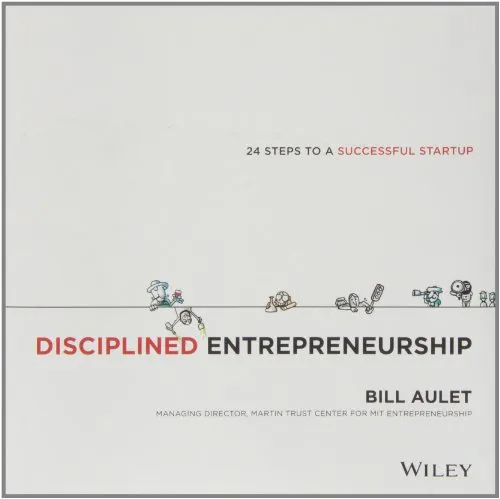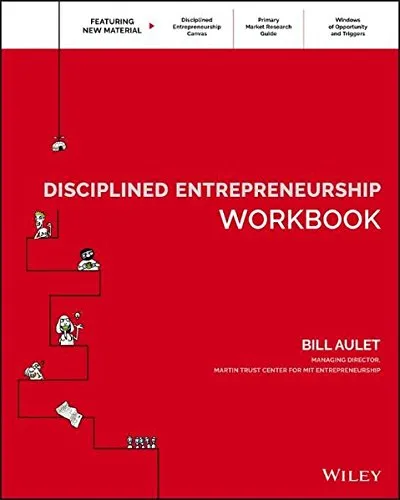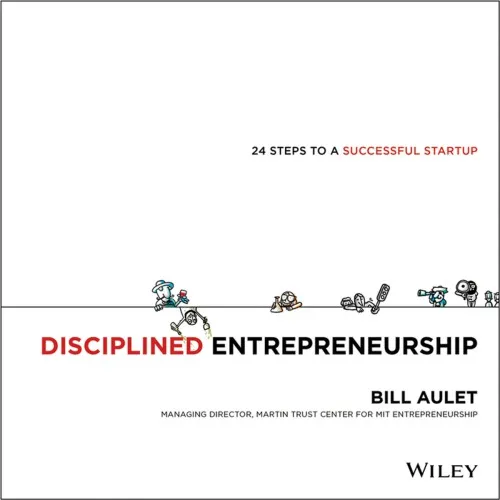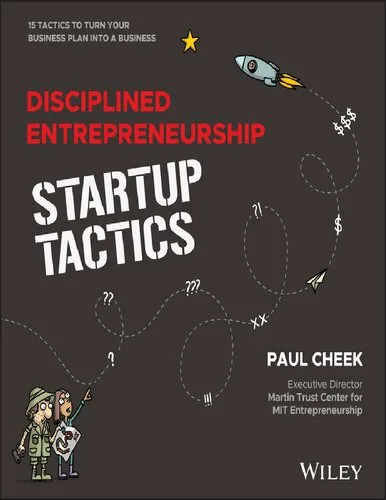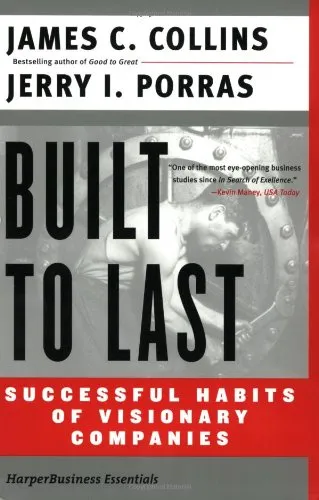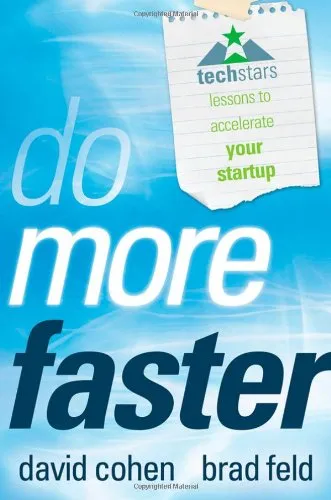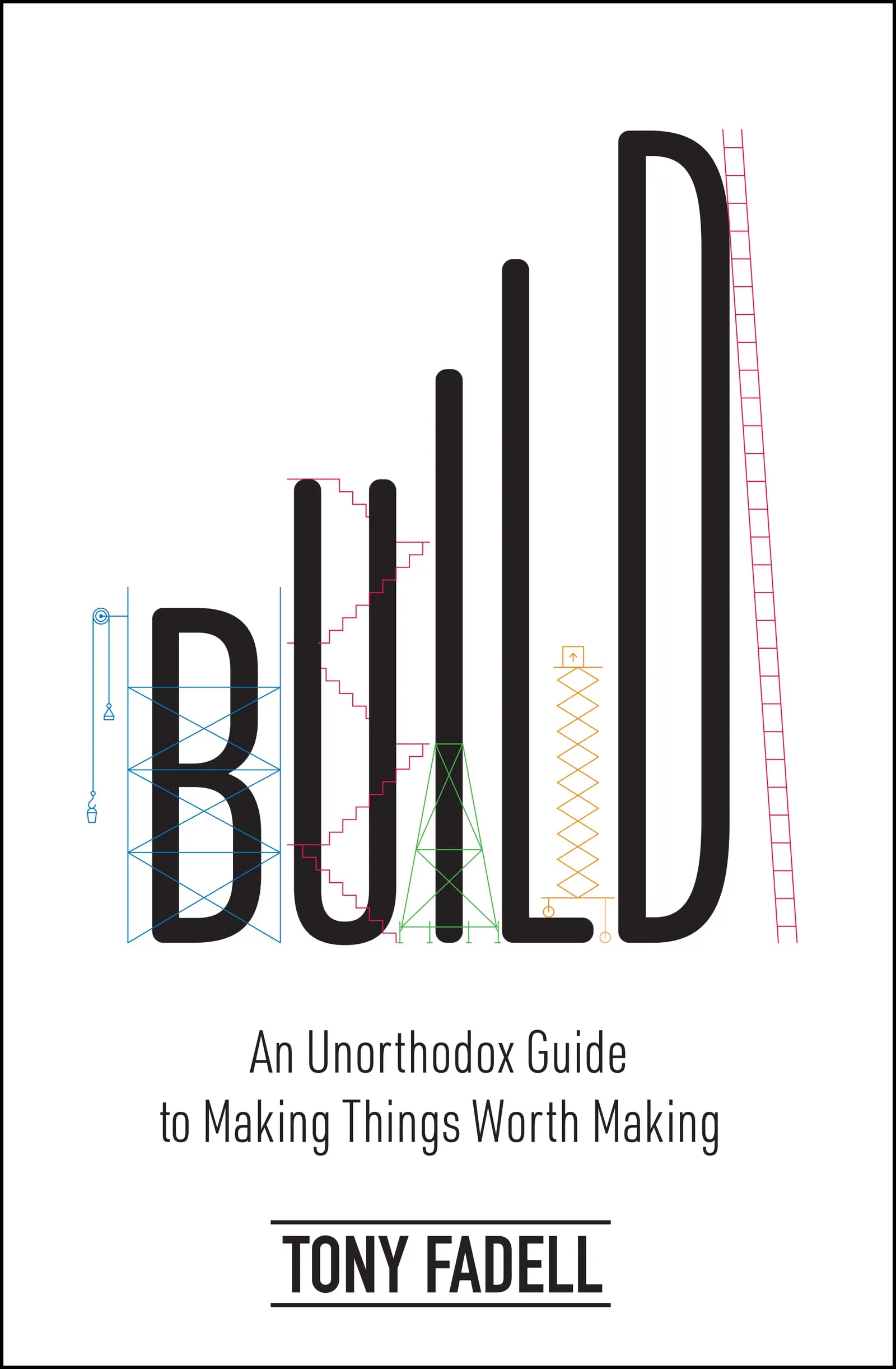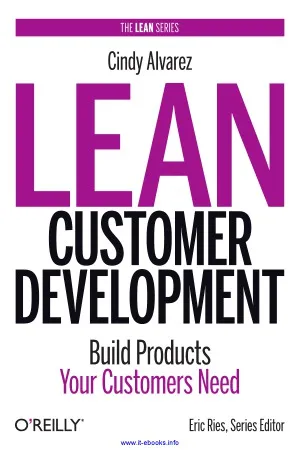The Lean Startup. A Summary of the book
4.5
Reviews from our users

You Can Ask your questions from this book's AI after Login
Each download or ask from book AI costs 2 points. To earn more free points, please visit the Points Guide Page and complete some valuable actions.Related Refrences:
Persian Summary
Introduction
Welcome to the world of 'The Lean Startup. A Summary of the book', a compendium that distills the essence of Eric Ries' pioneering work on innovation, entrepreneurship, and efficient startup growth. This book serves as a beacon for entrepreneurs and business innovators who are navigating the uncertain waters of launching a new business venture. Its principles are rooted in overcoming the challenges of scarcity, limited resources, and the incessant pressure to deliver value to customers swiftly and effectively.
At the heart of 'The Lean Startup' is a revolutionary approach that emphasizes creating order in chaos, where startups approach product development in cycles, allowing real-world data to guide adjustments rapidly and responsively. This cycle minimizes waste, maximizes customer feedback, and utilizes an iterative, agile methodology that culminates in efficient and successful customer-oriented products.
Within this introduction, you will explore a detailed overview of the summary, discover key takeaways that encapsulate the ideologies of the Lean methodology, reflect on famous quotations that capture the spirit of entrepreneurship, and understand the significance of this book in today's fast-evolving business landscape.
Detailed Summary of the Book
'The Lean Startup' introduces the foundational concept of validated learning, a continuous process through which startups test multiple aspects of their vision and adjust accordingly. The book focuses on the Build-Measure-Learn feedback loop. Startups quickly build a minimum viable product (MVP), measure its success in the market, and learn from feedback to iteratively develop their final product.
This method facilitates an experimental approach to product development, where real user feedback becomes the guiding light. It reduces the risks associated with launching new ideas by revealing misconceptions early in the development process. Startups can pivot or persevere, depending on collected data, which fosters a savvier approach to scarce resource management and time.
Eric Ries' insights also highlight the importance of a startup's ability to adapt and evolve, stressing flexibility in strategy over rigid business plans. By closely examining the real-world application of these principles in companies like Dropbox and IMVU, the book offers compelling illustrations of Lean Startup principles in action.
Key Takeaways
- Validated Learning: Test every hypothesis with rigorous measurement before moving forward.
- Build-Measure-Learn: Use short, quick cycles to test and develop product ideas.
- Minimum Viable Product (MVP): Create only what is necessary to learn from customers.
- Innovation Accounting: Focus on learning milestones over vanity metrics to measure success.
- Pivot or Persevere: Regularly assess progress and adjust the strategy based on data.
Famous Quotes from the Book
"The only way to win is to learn faster than anyone else."
"Success is not delivering a feature; success is learning how to solve the customer's problem."
Why This Book Matters
In an era where new businesses must rapidly adapt to changing technologies and consumer expectations, 'The Lean Startup' provides a structured, scientific approach to building a sustainable startup. Its principles empower entrepreneurs to innovate continuously, hence reducing failure rates in an unpredictable market.
The book's methodologies transcend traditional business theories, offering real-time, actionable strategies that foster a culture of innovation. By promoting adaptive learning and quick iteration, 'The Lean Startup' is not just a guidebook but a critical mindset shift required for success in the modern entrepreneurial landscape.
Free Direct Download
You Can Download this book after Login
Accessing books through legal platforms and public libraries not only supports the rights of authors and publishers but also contributes to the sustainability of reading culture. Before downloading, please take a moment to consider these options.
Find this book on other platforms:
WorldCat helps you find books in libraries worldwide.
See ratings, reviews, and discussions on Goodreads.
Find and buy rare or used books on AbeBooks.
1669
بازدید4.5
امتیاز0
نظر98%
رضایتReviews:
4.5
Based on 0 users review
Questions & Answers
Ask questions about this book or help others by answering
No questions yet. Be the first to ask!
